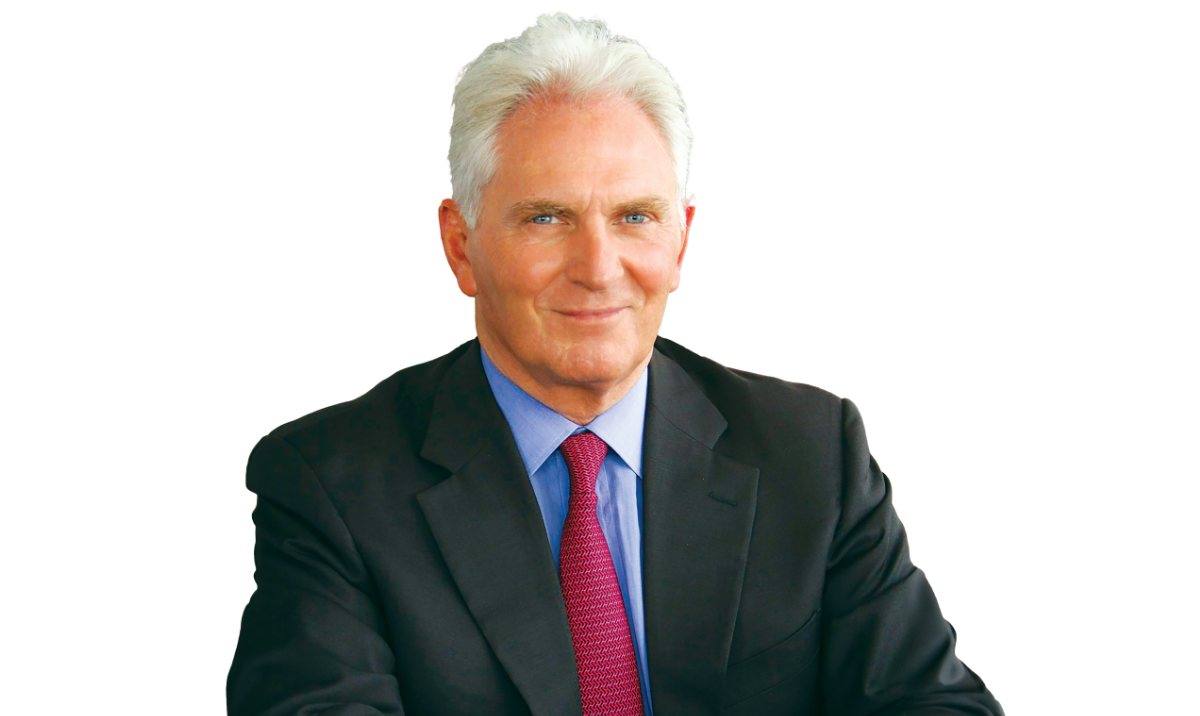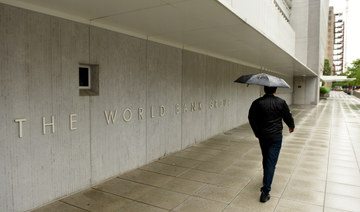RIYADH: In a worrying report issued on Oct. 30, the World Bank warned that the war in Gaza between Israel and Hamas could trigger an economic “shock” that would include oil prices soaring up to $150 a barrel and millions around the world going hungry due to the result of higher food prices.
Just as the world economy emerges from the disruption of the pandemic and the shockwaves of the Ukraine war, economists and risk analysts are mindful of how an escalation of the Israel-Hamas conflict into a wider regional war involving Lebanon, Syria, Iraq, and even Iran, might impact the global economic recovery and the price of commodities for rich and poor countries alike.
In its latest Commodity Markets Outlook, the World Bank stresses that while the global economy is in a much better position than it was during the 1970s to “cope” with a major oil-price shock, it did state that “an escalation of the latest conflict in the Middle East – which comes on top of disruptions caused by the Russian invasion of Ukraine – could push global commodity markets into unchartered waters.”
In 1973 members of the Organization of Arab Petroleum Exporting Countries, led by Saudi Arabia’s King Faisal, proclaimed an oil embargo of nations that had supported Israel during the Yom Kippur War. At the time, the embargo acutely strained the US economy, which had grown increasingly dependent on foreign oil under the Nixon Administration.
“At the moment, the situation is fluid,” Dr. Nasser Saidi, former Lebanese economy and trade minister and founder of Nasser Saidi & Associates, an economic and business advisory consultancy, told Arab News, adding: “The impact of the Israel-Hamas war will depend on the length and depth of the conflict as well as if it spills over into the wider region, thus drawing in other parties, resulting in international ramifications that would then have an effect on global supply chains.”
In his presentation “The Middle East in a Fragmented, Multi-Polar World” at the 19th Korea Middle East Cooperation Forum in Doha from Nov. 5-8 this year, Saidi stated how “global growth momentum has already slowed significantly this year; the war has the potential to further slow growth rates, raise already record-high public debt levels into crisis.”
According to the bank’s report, the conflict’s effects on global commodity markets have been limited so far. Overall oil prices have risen about 6 percent since the start of the conflict. Prices of agricultural commodities, most metals, and other commodities have barely budged.
“The global economic impacts of the war between Israel and Hamas have remained relatively muted,” Robert Mogielnicki, senior resident scholar at the Arab Gulf States Institute in Washington, told Arab News.

The impact of the Israel-Hamas war will depend on the length and depth of the conflict as well as if it spills over into the wider region, thus drawing in other parties, resulting in international ramifications that would then have an effect on global supply chains.
Dr. Nasser Saidi, former Lebanese economy and trade minister and founder of Nasser Saidi & Associates
“Unless we see this conflict ignite the region, there is unlikely to be a major shock to global markets,” he added. “This war of course raises the geopolitical stakes within the region, but in many cases the impact of geopolitical developments on markets tends to be limited and short-lived.”
However, some analysts take a different view, and warn that ongoing fighting between Israel and Hamas could severely threaten the world’s already fragile economic outlook.
The war in Gaza, now in its sixth week, has resulted in the displacement of around 1.5 million Palestinians, 21 hospitals that have gone out of service and dozens more that had been severely damaged, over 11,000 deaths and tens of thousands more injured, according to the Health Ministry in Hamas-run Gaza.
“We are meeting at a very dangerous time for our part of the world,” said Saidi during his presentation in Doha. “The timing of this conference is very opportune at a personal level, and I think it reflects many of us. I have known nothing but war during my own lifetime as a professional, as a minister, as a public official, as an academic. My message is it must end and maybe what is happening today in Gaza and Palestine more generally may be a moment of change. We don’t know yet. We’re still living the fog war.”
As Saidi underlined, the Middle East is home to 60 percent of the world’s refugees – the highest number in the world.
Palestinian refugees won’t just stay in neighboring countries, they will be pushed to move to other regions, including Europe, he added.
“The impact of the war on oil and gas prices could be huge,” said Saidi, further noting that if oil prices jump to a record $150 per barrel as the World Bank warns, “it will affect world economic growth, which has already been slowing during 2023. The more inflation affects commodity prices, the lower economic growth and the increase in debt crises for many countries because you are also having a period of high interest rates.”
“Destruction and violence beget violence,” added Saidi in his presentation. “There are no military solutions in Gaza.”
The countries most vulnerable in the Middle East include Lebanon, Egypt, Jordan and Iran. These countries are already facing a decline in growth, have current account and fiscal deficits and a fall in international reserves. According to Saidi, the sectors that will be most impacted in these countries are tourism, hospitality, construction and real estate, as well as capital outflows and lower foreign direct investment inflows.
“Neighboring Middle Eastern states dealing with significant economic challenges of their own, like Egypt and Lebanon, are especially vulnerable here,” said Mogielnicki. “Any spillover of violence or refugees will immediately impact these neighboring states, which do not necessarily have the absorptive capacity.”
A lot clearly depends on oil.
“Any escalation of violence or major attacks in the oil- and gas-producing countries of the Gulf would affect energy markets in a consequential manner,” said Mogielnicki. “Thus far, key actors in the Gulf have demonstrated a strong desire to prevent this war from turning into a broader regional conflict.”
On Nov. 11, Saudi Arabia called an emergency Arab-Islamic Summit to address concerns over the humanitarian crisis in Gaza. All leaders agreed on the need for a ceasefire. The joint summit concluded by calling for an Israeli arms embargo.
HIGHLIGHT
The World Bank stresses that while the global economy is in a much better position than it was during the 1970s to cope with a major oil-price shock, it did state that an escalation of the latest conflict in the Middle East could push global commodity markets into unchartered waters.
“The world is becoming increasingly fragmented,” said Saidi.
It has also experienced great economic shifts in recent years – shifts that see the global economy looking eastward rather than westward.
In 1993, the G7 countries produced close to 50 percent of the world’s gross domestic product. Today, that group accounts for 30 percent, while Asia, in particular China, produces close to 20 percent.
“The implications for this part of the world are very clear,” said Saidi. “Our economic relations, politics, defense and other ties have always been with the West, but economic geography dictates that we need to shift those relations towards Asia.”
Saidi argued in his presentation that one way to solve some of the dire economic prospects facing the Middle East, especially with the war in Gaza, is the creation of a regional development bank. The focus now needs to be on “post-war stabilization, reconstruction, recovery and a return to pre-war economic legacy.”
“The GCC (Gulf Cooperation Council) have got to be the main engine for economic stability across the Middle East because they’re capable of doing that,” said Saidi. “In order to do so, we must reinvigorate the GCC common market and the GCC customs union. We need trade agreements as a block for the GCC countries. Secondly, we need to establish an Arab bank for reconstruction and development. We are the only region in the world.”
"We are the only region in the world without a development bank," said Saidi.
When asked why the Middle East needs a development bank, Saidi said: "Because many of our countries have been destroyed."
“We need to help rebuild them. The cost is easily $1.4 to $1.6 trillion, and the list of countries is increasing. We now have Gaza and Palestine added to them.”
This, he said, could be one area for cooperation between the Middle East and Asia.
“The big tectonic shift is moving towards Asia,” added Saidi. “All our trade agreements are with Europe and the United States. That must change. We must shift.”






























